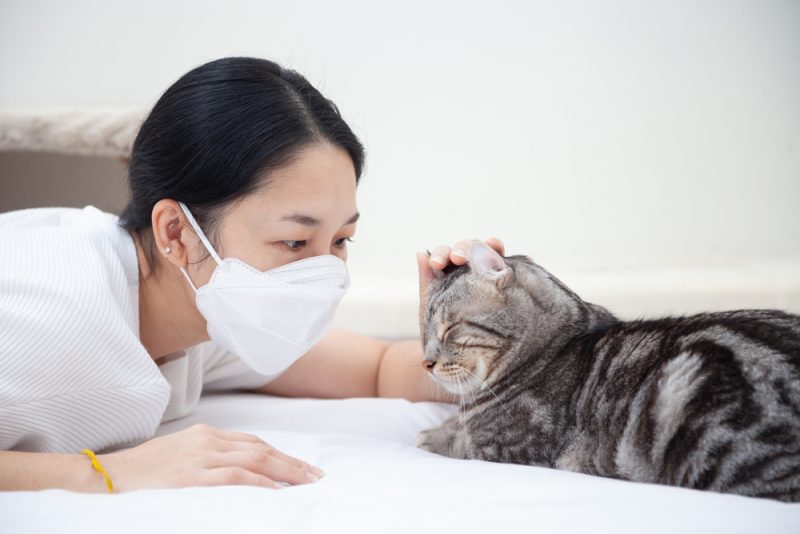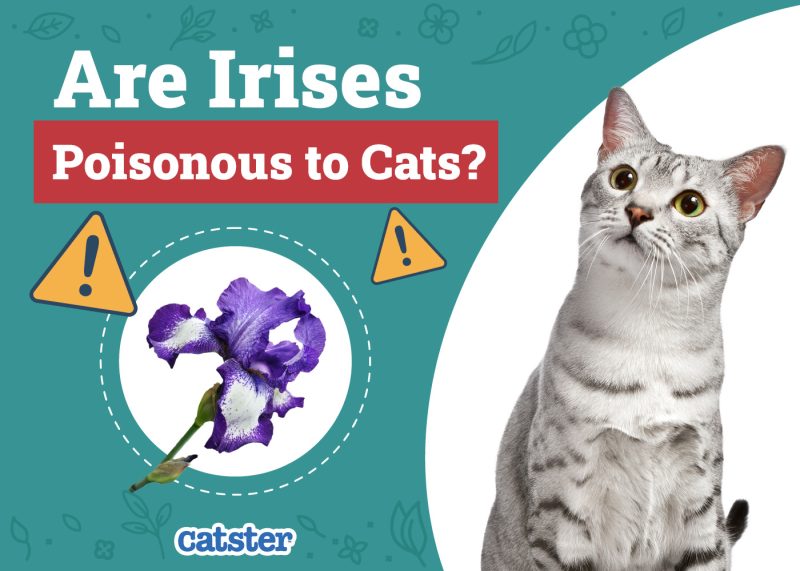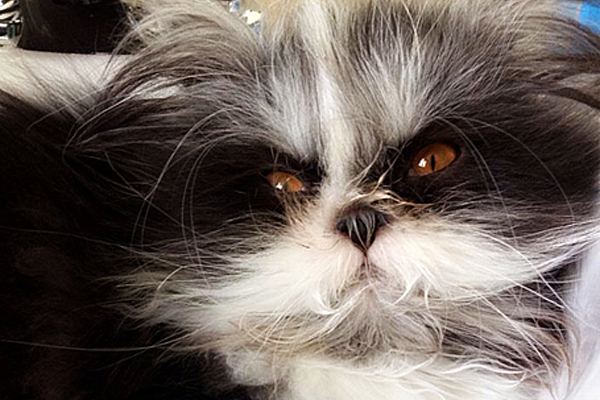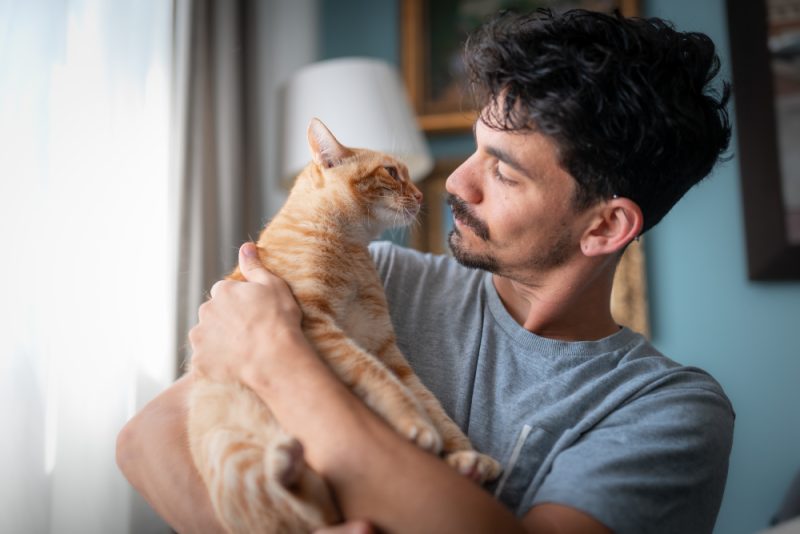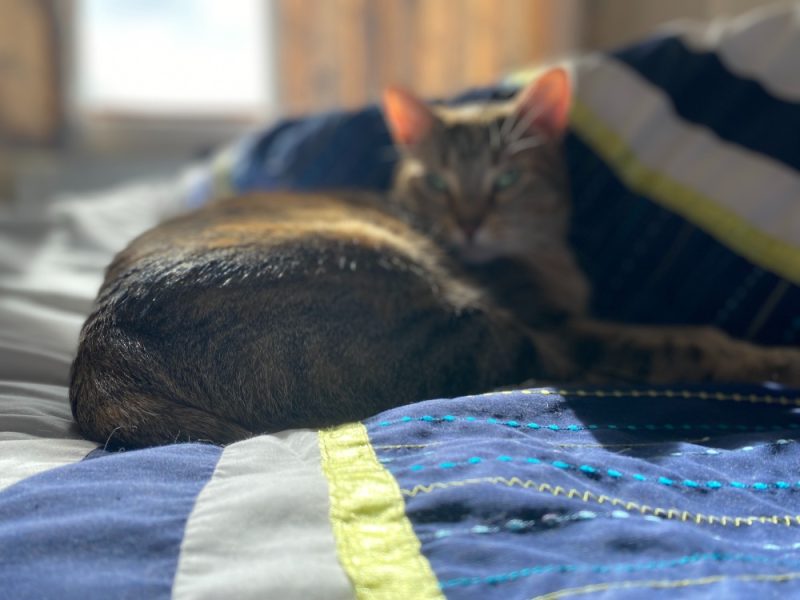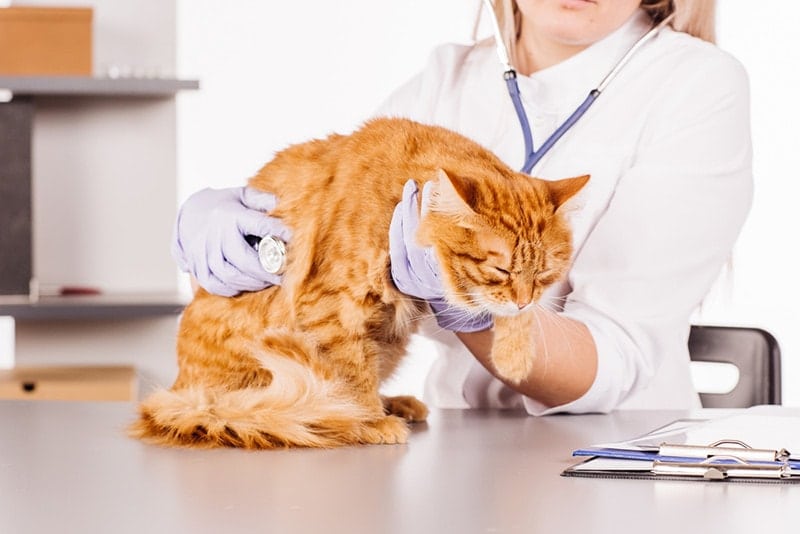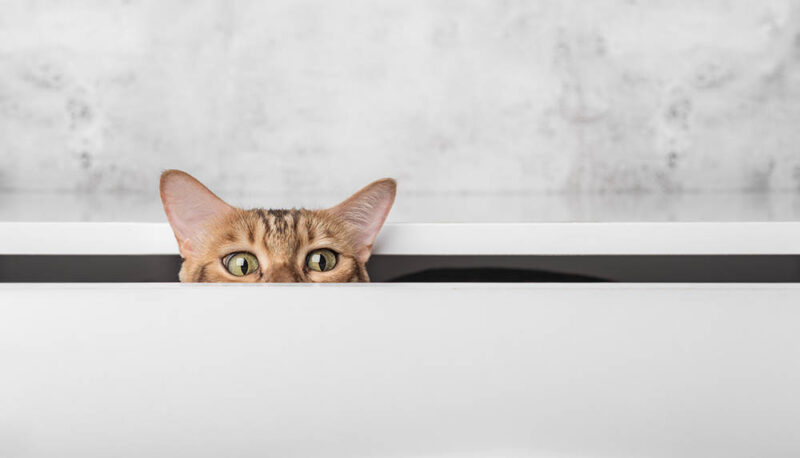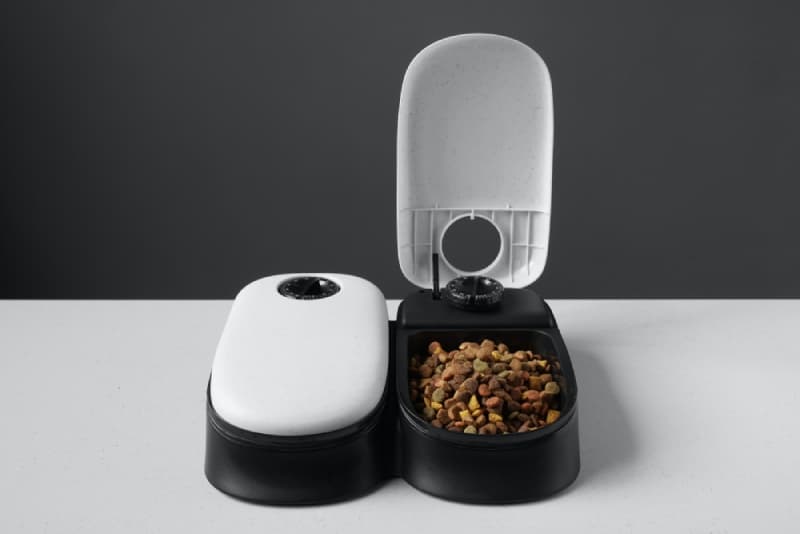In this article
View 2 More +While countless studies tout the physical and mental benefits of pet ownership, it can still be nerve-wracking for immunocompromised people to be around pets. If someone is immunocompromised, they’re strongly advised to consult their doctor before deciding to adopt any pet (including a cat).
However, sometimes people receive a diagnosis of a condition that compromises their immune system while already owning pet cats. For such people, knowing how to take care of themselves with a cat in the house is crucial.
Read on to explore options on coexisting with a cat when you are immunocompromised. However, do keep in mind that you should always follow your medical doctor’s advice on the matter as they would know what’s best for you.

What It Means to Be Immunocompromised
When someone is immunocompromised, it means that their immune system is weakened and is not as capable as that of a normal, healthy adult.
- Infants
- Children under the age of 5
- People who are pregnant
- The elderly (those over 65)
Individuals of these age groups require more precautions than others, even if they appear seemingly healthy.
At other times, one’s immune system weakens on a temporary basis due to another ailment. In such instances, the immune system is temporarily on the backfoot, however, it often bounces back once the underlying issue is resolved.
However, some people are either born with an immune system that isn’t competent enough to function properly, or they contract an illness, disease, or ailment which hampers the functionality of their immune system on a long term basis.
If you are born with a weak immune system or have a diagnosis of a long-term condition that compromises the function of your immune system, you are strongly advised to seek the advice of your doctor prior to making a life altering decision such as adopting a cat (or any other pet). The CDC discourages adopting cats if you are immunocompromised.1


Our 8 Tips for Safely Living with Cats While Immunocompromised
The following tips are meant to cater to those who are temporarily immunocompromised or those who had a pet cat prior to learning about their diagnosis of a long-term condition which leads to immune system compromise.
1. Honestly Assess Rehoming Your Cat
If you’ve been diagnosed with a long term condition that will permanently affect your immune system, it’s very important to be honest with yourself and consider the possibility of rehoming your cat. Though this does sound cruel on the surface, it’s in fact the best course of action for many people and their pet cats.
Immunocompromised people may not be able to interact with their cats the way they used to, and therefore, it might be unfair for your cat to be around you while you’re struggling to manage your health. It can also lead to resentment on part of the owners, as they may blame themselves for the impending tantrums, stress episodes (which can lead to expensive vet visits), and behavior issues their cats may develop.
As the saying goes, you should “wear your own oxygen mask before helping others”. Sometimes, it’s best to be very honest with yourself and choose love. In this context, love would be doing what’s best for you and your cat for a long term basis.
2. Keep Your Cat Indoors
Keeping your cat indoors not only protects them and the wildlife in your area but also minimizes the risk of your kitty catching diseases from other animals. This minimizes the risk of your cat coming back home carrying parasites and diseases which they can then pass onto you. Contrary to popular belief, it’s very much possible for an indoor cat to live a fulfilling, enriched life. In fact, they tend to live longer than outdoor cats on average.1
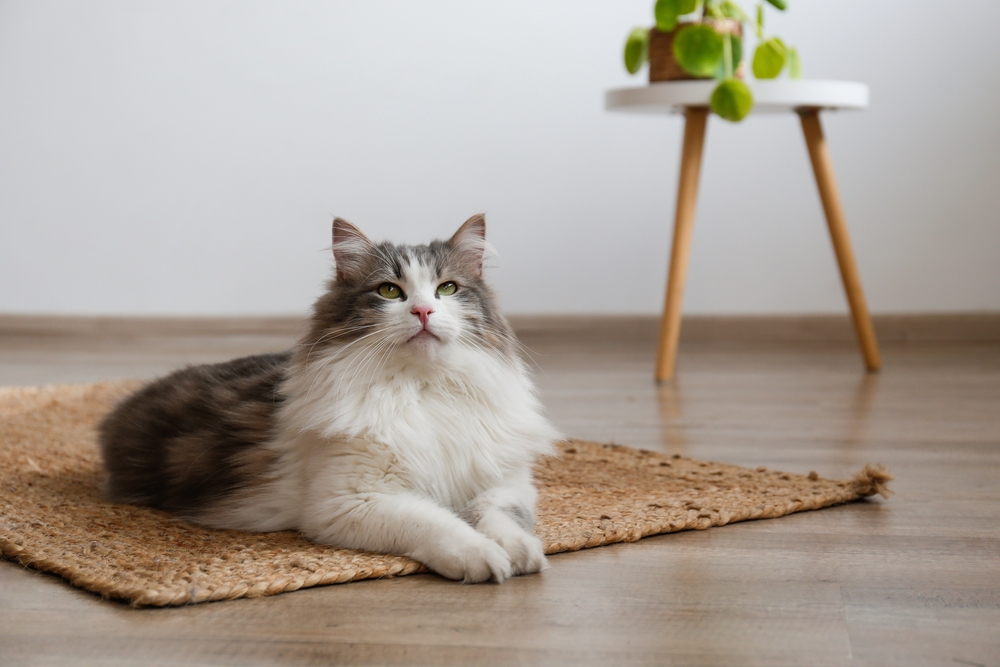
3. Practice Safe Food Handling
If you are immunocompromised, it isn’t advisable to place your cat on a raw diet. This is due to the increased risk that raw meat naturally possesses, even when you take safety precautions (such as pasteurizing the meat and meat byproducts you feed your cat).
Though cats cannot be legally designated as working animals, they can be registered as emotional support animals. Working animals (such as dogs) cannot be on a raw diet, and therefore, it’s best that emotional support animals are also managed this way. The CDC does not recommend raw pet food or treats for pets who are in close proximity to immunocompromised people.2
4. Have Your Pet Tested
Have a vet routinely test your pet cat for common diseases found in felines. Though many diseases, such as feline immunodeficiency virus and feline leukemia virus are not contagious to humans, they may compromise your pet’s health and immune system. In turn, your pet would be more vulnerable to illnesses which may be passed onto you.
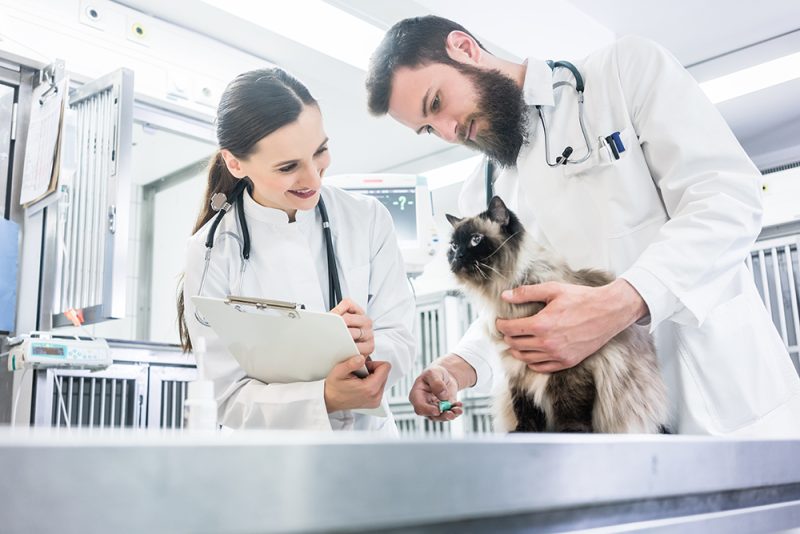
5. Keep Your Cat’s Nails Trimmed
It’s best to keep your cat’s nails trimmed short. A scratching post and the services of a groomer are best for this purpose. Try to avoid roughhousing types of play and situations that might lead to you getting scratched, as cats can infect humans with diseases by scratching them.
6. Be Smart About Your Litter Box Duties
If you are immunocompromised, the CDC’s prevailing advice is to avoid litter box duties. However, if nobody else can perform litter box duties, disposable gloves should be used, and your hands should be thoroughly washed with soap and water afterwards.3
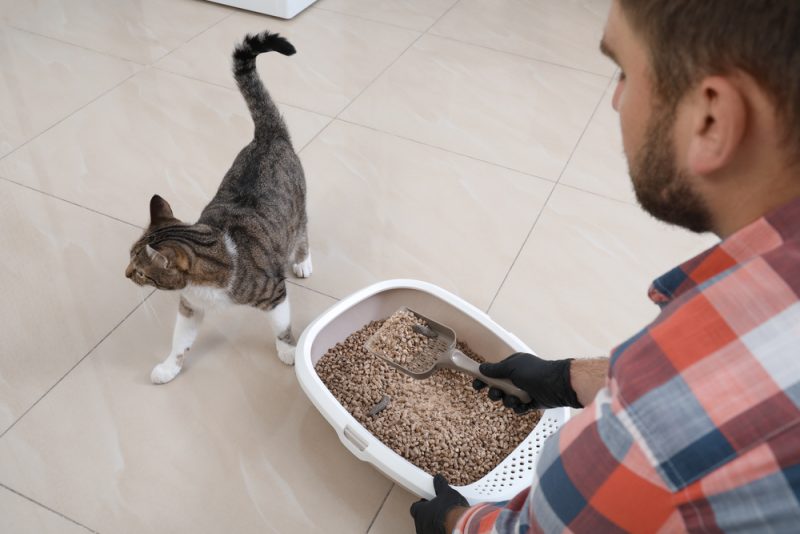
7. Keep an Open Line of Communication with a Vet
Regular veterinary exams ensure your kitty remains in good health. It is especially important for immunocompromised people to have their animals regularly checked for parasites. This tip is important for those who have only recently discovered that they are immunocompromised. As previously mentioned, the CDC discourages adopting cats if you are already immunocompromised.
8. Keep Your Cat Out of Your Bedroom
Having separate sleeping quarters is a good idea for an immunocompromised person. This ensures that your cat cannot simply climb onto you (with litter paws!) when you’re asleep and potentially make your health worse.
If you are concerned or have questions about your cat’s health, you can also speak to a vet from the comfort of your own home to help make a plan. They can determine when an in-clinic vet visit should be made.
If you need to speak with a vet but can't get to one, head over to PangoVet. It's an online service where you can talk to a vet online and get the advice you need for your pet — all at an affordable price!


The 5 Diseases That Are Spread by Cats
A disease that can be passed to humans from an animal is known as a zoonotic disease. Cats can spread several such diseases that you should be aware of as a pet owner. While the illnesses and conditions below are not comprehensive, they are nonetheless important to keep in mind.
Please note that if you are immunocompromised and suspect that you’re ill, then you should immediately seek the advice of your doctor and follow their recommendations and care instructions. Keep in mind that an apparently healthy cat can easily pass diseases to those who are immunocompromised. The following information isn’t a replacement for medical advice, consultation, or a diagnosis.
1. Campylobacteriosis (Campylobacter spp.)
This disease is spread in several ways, but for our article, we’ll just talk about how people can catch it from their cats. Pet owners most often get this disease after encountering the feces of an infected cat. It is typically contracted if people don’t wash their hands thoroughly after petting their cats or cleaning their litter box, though open wounds can also be infected with the bacteria.
- Diarrhea (often bloody) – often accompanied with diarrhea and nausea
- Fever
- Stomach cramps
This disease can sometimes cause complications like temporary paralysis and even spread to the bloodstream, causing a life-threatening infection.
2. Cat Scratch Disease (Bartonella henselae)
Cats may become infected through flea bites, fights with other infected cats, or blood transfusions (rarely). People can be exposed to the bacteria through the scratch or lick of an infected cat.
- Small raised bump at the site of a scratch
- Lymph node swelling near site of scratch
These signs occur 1–3 weeks after the scratch or lick from an infected cat. They can also be accompanied by eye infections, fever, muscle pain, and other severe symptoms.
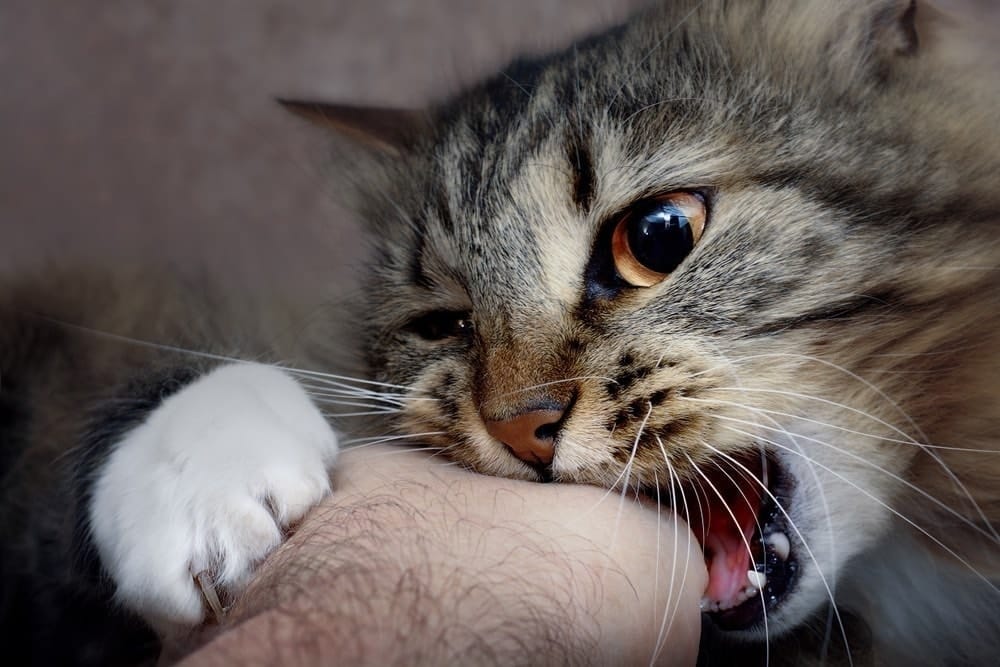
3. Cryptosporidiosis (Cryptosporidium spp.)
Cryptosporidium is a microscopic parasite that causes this disease, often called “crypto.” Humans are infected if they accidentally swallow the poop of an infected cat.
- Watery diarrhea
- Cramping
- Abdominal pain
- Vomiting
- Nausea
4. Toxoplasmosis (Toxoplasma gondii)
Toxoplasma is an intracellular parasite that cats can pass onto humans. It is considered particularly important for those who are immunocompromised. The infection can be transmitted by an infected cat’s feces (if they are actively shedding the parasite). It’s important to note that a cat can be infected with toxoplasmosis and at times not show any signs of illness whatsoever.
Toxoplasmosis can be very threatening for pregnant women, as it can affect a developing baby within the womb. Women who contract the parasite while pregnant may not develop any illness, and their babies may be born healthy as well. However, they may eventually develop symptoms later on in life, such as loss of vision, loss of hearing, mental impairment, and in severe cases, death. For this reason, the CDC cautions against handling or adopting stray cats (especially kittens) if you are pregnant or immunocompromised.
5. Ringworm/Dermatophytosis (Microsporum canis)
Ringworm is relatively common in cats, and is often self-limiting in healthy cats. This means that cats that have only mild infections and are otherwise healthy can often make a complete recovery on their own. Nonetheless, at times cats do need to be assessed and treated by a veterinarian if they have ringworm. Despite the presence of “ring” in the name, it often appears as moist bald patches in cats without any particular shape.
Ringworm is considered zoonotic and cats may easily pass this onto immunocompromised individuals. In humans, the lesions are indeed ring-like, usually red in color, and are often extremely itchy and sometimes quite painful.
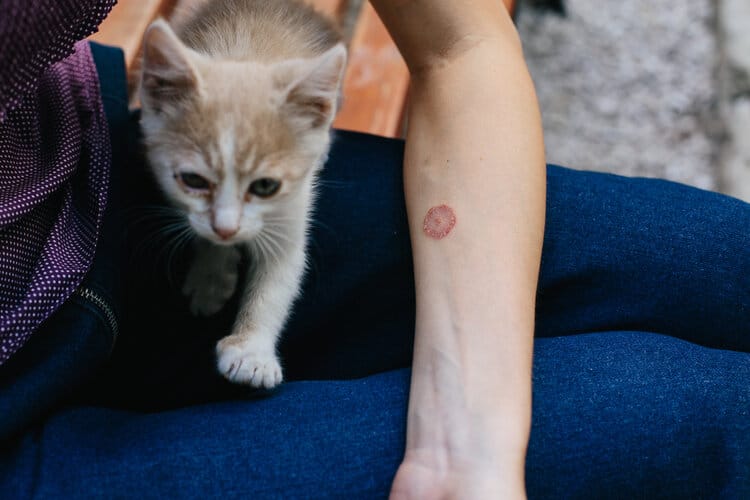

Final Thoughts
If you are an immunocompromised person, the prevailing advice from all relevant government bodies and health agencies is to avoid adopting a pet. However, if you find yourself temporarily immunocompromised, certain tips can help you better manage yourself while in the company of your pet.
Keep in mind though that your doctor’s advice should take precedence over any advice given in this article, as they would know your medical history and immune system competency the best. It’s just as important to know that adopting a cat isn’t the only way to help the species; many shelters and humane societies have other programs you can participate in without compromising your health.
See Also:
- Are Cats Good for Your Health? Science-Backed Benefits
- How to Boost Your Cat’s Immune System: 8 Vet-Reviewed Tips
Featured Image Credit: Nitiphonphat, Shutterstock
